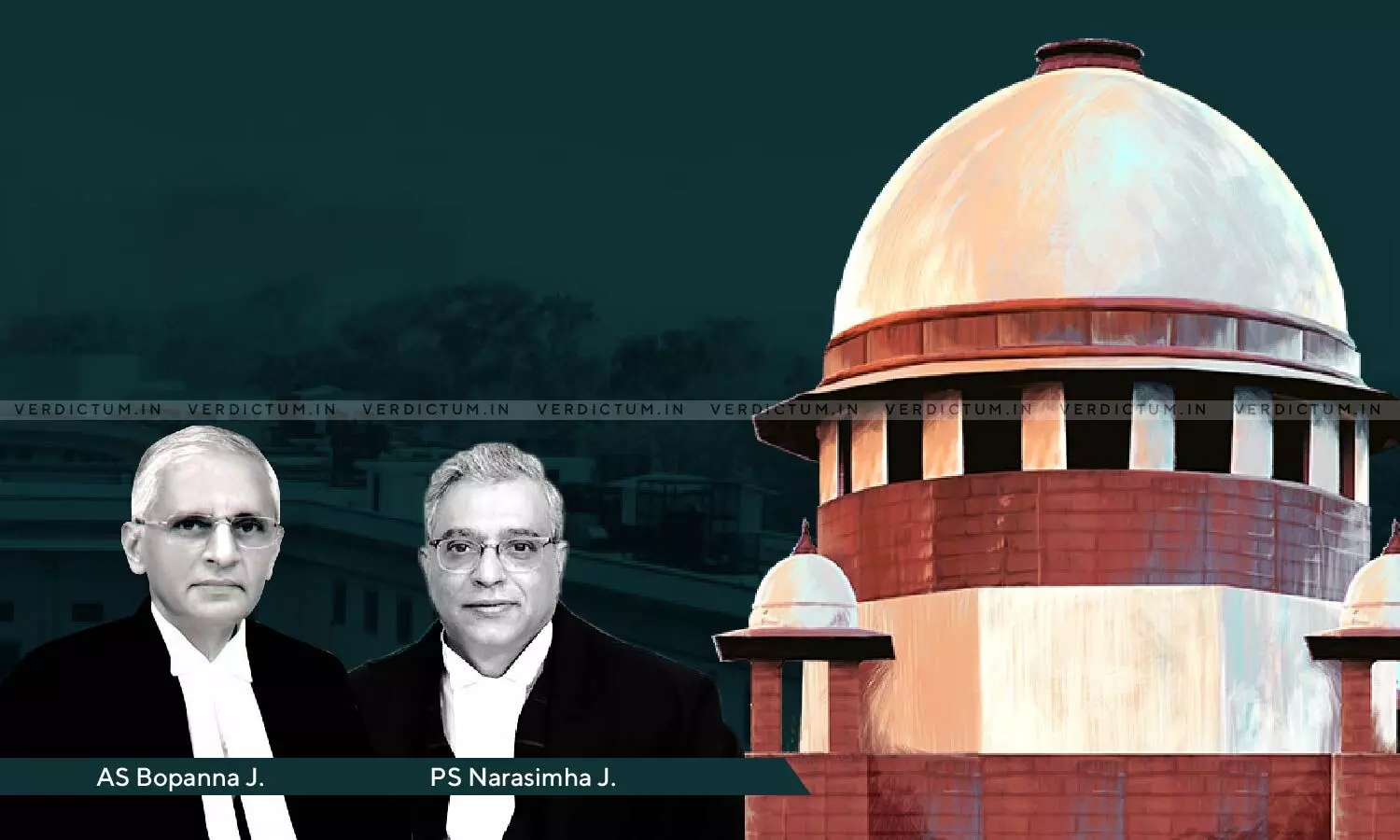
Can't Deny Relief To Employees When Their Entitlement Is Denied Due To Irrational Consideration By Employer: SC
 |
|The Supreme Court has observed that the relief cannot be denied to the employees when the entitlement is denied due to irrational consideration without application of mind by the employer.
The court observed thus while dismissing an appeal was filed against the order passed by the Delhi High Court by which it set aside the order of the Central Administrative Tribunal (CAT). CAT had declined the relief sought by the D.G.O.F. Employees Association for parity in pay scales.
The two-Judge Bench of Justice A.S. Bopanna and Justice P.S. Narasimha held, “A cumulative perusal of the opinion expressed by this Court would indicate that though the Courts would not undertake the exercise of determining the pay scale keeping in view the nature of the work by comparing employees who are not similarly placed in cases where the exercise of determining such complex issues would arise, at the same time, relief cannot be denied to the employees when the entitlement is denied due to irrational consideration without application of mind to the facts involved in the case by the employer, thereby denying the benefits to the employees.”
Senior Advocate R. Bala Subramanian appeared on behalf of the appellant while Senior Advocate Kiran Suri appeared on behalf of the respondents.
In this case, the respondent was an Association of Employees in the Head Quarters of Ordnance Factory Board and they sought for upgradation of the pay scales of Assistant and Personal Assistants of Ordnance Factory Board, Headquarters as had been given to similarly placed employees of Central Secretariat Service (CSS) and equivalent posts in Armed Force Headquarters Civil Service (AFHCS) Cadre, New Delhi, and similar other cadres. The Ministry of Defence through an order did not approve the same and this was communicated to the respondents by the letter. The respondents therefore being aggrieved were before the CAT but the CAT also declined the prayer which resulted in the writ proceedings before the High Court.
The High Court having analysed the matter was however of the view that the members of the respondent were historically treated as equals to CSS/CSSS employees and had earlier enjoyed equal pay and all benefits. Hence, a direction was issued to the appellants to fix the members of the Respondent Association and other similarly placed Assistants working in Ordnance Factories and in OFB in the same pay scale as was given to Assistants similarly placed in CSS/CSSS, Army Headquarters, UPSC, CAT, MEA, Ministry of Parliamentary Affairs etc. with effect from the same date as was first given to them. The appellant therefore claiming to be aggrieved by the same, filed an appeal before the Apex Court.
The thrust of the contention on behalf of the appellants was that the power of judicial review in matters pertaining to pay scale is limited, unless arbitrariness can be demonstrated or there is palpable discrimination. The Supreme Court in this regard said –
“The learned senior counsel for the respondents on the other hand has referred to the decision of this Court in Union of India vs. Dineshan K.K. (2008) 1 SCC 586 wherein it is held that though the equation of posts and equation of pay structure being complex matters are generally left to the executive and expert bodies like the Pay Commission etc. and the carefully evolved pay structure ought not to be ordinarily disturbed by the Court as it may upset the balance and cause avoidable ripples in other cadres as well, nevertheless, it will not be correct to lay down as an absolute rule that merely because determination and granting of pay scales is the prerogative of the executive, the Court has no jurisdiction to examine any pay structure and an aggrieved employee cannot be left with no remedy if he is unjustly treated by arbitrary State action or inaction, except to go on knocking at the doors of the executive or the legislature.”
It was further held in the aforesaid case that, when there is no dispute with regard to the qualifications, duties, and responsibilities of the persons holding identical posts or ranks but they are treated differently merely because they belong to different departments or the basis for classification or post is ex facie irrational, arbitrary or unjust, it is open to the Court to intervene.
“… what was also taken into consideration by the High Court is the historical similarity in pay scales which existed prior to the recommendations in the Sixth CPC. Such historical similarity which had existed was taken note and, in that light, the pay scale which was applicable was taken into consideration and had accordingly arrived at the conclusion that the employees in the headquarters of the Ordnance Factories being similarly placed cannot be discriminated. Therefore, such consideration in the instant case would fall within the parameters as permitted by this Court”, observed the Court.
Furthermore, the Court noted that the post of Assistants, PAs and Stenographers is governed by Director General Ordnance Factories Headquarters Civil Service Rules, 1977. It said that the High Court did not proceed in a manner so as to equate two sets of employees in different organisations but refused to interfere in the same in view of the recommendation of the Pay Commission and applicability of the pay scales.
Accordingly, the Apex Court dismissed the appeal.
Cause Title- Union of India & Ors. v. D.G.O.F. Employees Association and Anr. (Neutral Citation: 2023 INSC 995)